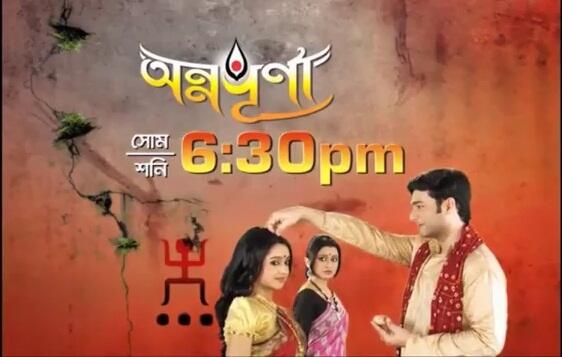

Participated in 1942 movement and imprisoned.įormer Secretary & President, City Congress Committee, Unnao 'Mahadevi ki Kavya Sadhana' in 1951'Geeti Kavya : Udyam Aur Vikas' 1995' (Both Critic)īHUPENDRA NATH SHUKLA (born at Hafizabad, Unnao) 'Mitti Ki Baarat' in 1972'Vani ki Vyatha' in 1980'Kate Anguthon ki Vandanvaren' in 1991 'Pralay Srajan' in 1950 'Vishwas Badalta hi Gaya' in 1948 'Vidhya Himalaya' in 1960 Publications 'Hillol' in 1939 'Jeevan ke Gaan' in 1942 'Yug ka Mol' in 1945 by Bhagalpur University in 1973 & by Jabalpur University in 1983. Govt.'Bharat Bharti' Award in 1993 and several others. Visited Nairobi (Kenya), Mauritius, Nepal, Afganistan, erstwhile USSR, France, England, Mangolia, Australia and Several other Countries.Īwards 'Deva Puraskar' in 1958 'Soviet Land Nehru Award' in 1974 'Sahitya Akademy Award' in 1974'Shikhar Samman' in 1993 from M.P. President, Association of Indian Universities, New Delhi during 1977-78 Hindi Sansthan, Lucknow, Press & Cultural Attache, Indian Embassy, Kathmandu Nepal during 1956-61 President Kalidas Academy, Ujjain.Ĭareer V.C., Vikram University, Ujjain during 1968-78. Hindi Poet, M.A.,PhD in Hindi (both from B.H.U.) SHIV MANGAL SINGH SUMAN (born at Jhagarpur, Unnao) 'Swadhinta Sangram - Badelte Pariprekshya' in 1992. 'Apni Dharti Apne Log' (Autobiography : 3 Vol.) in 1996 'Bharat Ki Prachin Bhasha Parivar Aur Hindi' in 1979 (The above are all critics & history of literature.) 'Roop Tarang Aur Pragatisheel Kavita Ki Vaycharik Prishthbhoomi' in 1990 'Bharat Mein Angareji Raj Aur Marxvad' in 1982 'Acharya Ram Chand Shukla Aur Hindi Aalochana' in 1973 'Nirala Ki Sahitya Sadhana' ( 3 Vol.) during 1969-76 'Pragatisheel Sahitya Ki Samasyayen' in 1955

Publications More than 30 Hindi Publications. 'Shalaka Samman' from Hindi Academy, Delhiīut as a noble gesture he refused the prize money of many awards with a request that it may be utilised in the promotion of literacy. 'Akhil Bhartiya Pragatisheel Lekhak Sangh' (1949-53)Īwards Reciepient of 'Sahitya Akademy Award' in 1970. of English, Balwant Rajput College,Agraįormer Director K.M.Munshi Hindi Vidyapeeth, Agraįormer Gen.Secy. Hindi Scholar, MA English Literature, PhD. It is different that we are still besieged by evils like poverty, population, prostitution etc.

How easily do we take this independence for granted and become happily oblivious to the fact that we would still have been slaves had it not been for brave young men like Azad. The question that we all need to ask ourselves today is whether or not we are protecting the freedom that is soaked with the blood of revolutionaries like Chandrashekhar Azad, Bhagat Singh, Rajguru, Sukhdev and the list goes on an on. His fearlessness is signified by the fact that he continued fighting an army of British soldiers for several hours before sacrificing his own life when there was no way out, thus setting a rare example of courage and devotion to the country. He lived upto his self-pride in not surrendering and in not succumbing to the enemy’s bullets. On Februhe shot himself dead while bravely fighting the British. He joined the Hindustan Socialist Republican Association (HSRA) as a freedom fighter and later became its leader.Azad was involved in the Kakori train robbery, the Central Legislative Assembly bomb incident, the Delhi conspiracy and the shooting of British Police Superintendent Saunders at Lahore (1928) to avenge the killing of Lala Lajpat Rai. He joined Gandhi’s Non-Cooperation Movement but the violence perpetrated by the British infuriated him to such an extent that he turned a revolutionary. The significance of this date lies in the fact that today in the year 1931 a valiant patriot by the name of Chandrashekhar Azad attained martyrdom while fighting the British so that we Indians could rejoice in freedom. When he realised that it would not be possible for him to escape, he shot himself by his Mauser pistol and fulfilled his vow. 1931, he was rounded up by British forces at Alfred Park Allahabad. He had vowed that he would not be caught alive by British forces. A great freedom fighter and revolutionary, he belonged to village Badarqa where his parental house still exists.


 0 kommentar(er)
0 kommentar(er)
